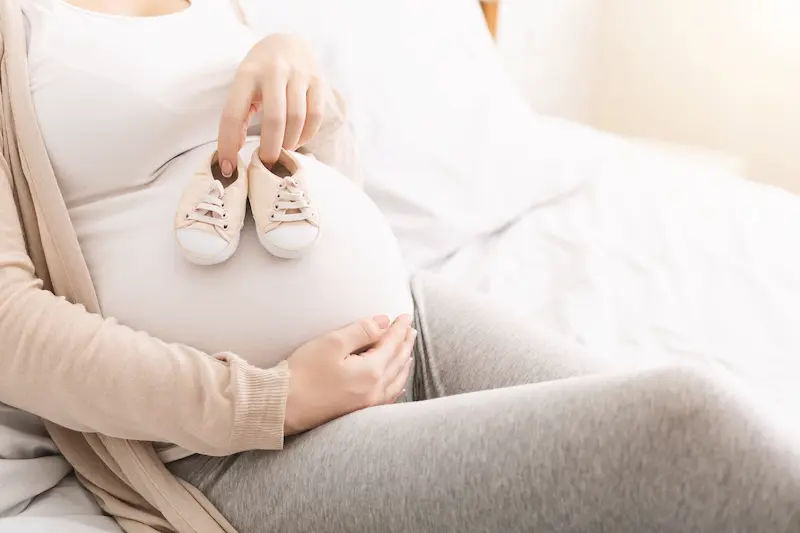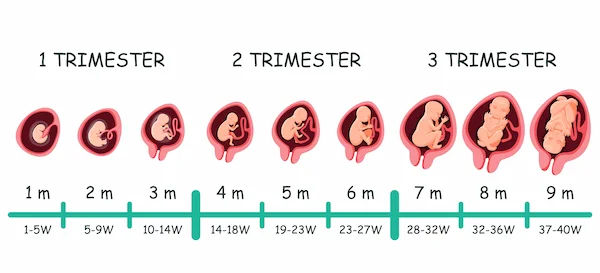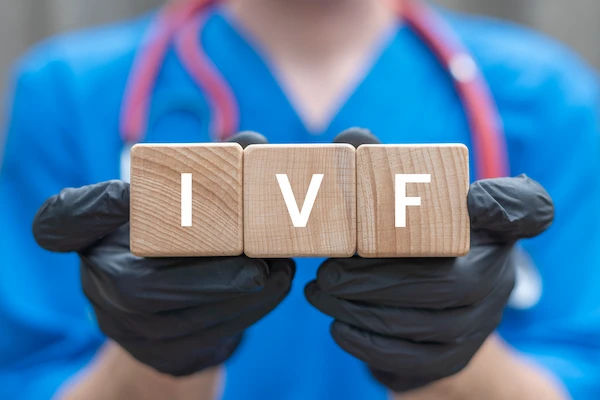Swelling in Feet During Pregnancy Explained
Swollen feet during pregnancy are common due to fluid retention and increased pressure. Learn what's normal, when to seek medical advice, and simple tips to reduce discomfort. Stay healthy and comfortable throughout your pregnancy journey.

Written by Dr. Dhankecha Mayank Dineshbhai
Reviewed by Dr. J T Hema Pratima MBBS, Fellowship in Diabetes Mellitus
Last updated on 13th Jan, 2026

Pregnancy is a beautiful journey, but it can also bring some discomforts—one of the most common being swelling in the feet and ankles, also known as edema. If you’ve noticed your feet looking puffier than usual, don’t worry—you’re not alone! Many expecting mothers experience this, especially in the later stages of pregnancy.
In this article, we’ll explain why swelling happens, when it’s normal, and when you should seek medical advice. We’ll also share some simple tips to help reduce discomfort.
Why Do Feet Swell During Pregnancy?
Swelling in the feet and ankles is usually caused by fluid retention and increased blood volume, which are normal changes during pregnancy. Here’s why it happens:
1. Increased Blood Volume: Your body produces more blood to support your growing baby, which can lead to extra fluid buildup in tissues.
2. Pressure from the Uterus: As your baby grows, the uterus puts pressure on the veins in your pelvis, slowing blood circulation and causing fluid to pool in your legs and feet.
3. Hormonal Changes: Pregnancy hormones (like progesterone) relax blood vessels, making it easier for fluid to leak into surrounding tissues.
Swelling is most common in the third trimester, especially after long periods of standing or sitting. It’s usually worse at the end of the day and improves after resting.
When Is Swelling Normal vs. When to Worry?
Most of the time, mild swelling is harmless, but there are cases when it could signal a more serious condition like preeclampsia (high blood pressure during pregnancy).
Normal Swelling:
- Mild puffiness in feet and ankles
- More noticeable in the evening
- Goes down after resting or elevating feet
Warning Signs (Seek Medical Help If You Notice):
- Sudden or severe swelling in hands, face, or legs
- Swelling accompanied by headaches, blurred vision, or dizziness
- Pain or redness in one leg (could indicate a blood clot)
- Shortness of breath or chest pain
If you experience any of these symptoms, consult your doctor immediately.
How to Reduce Swelling in Feet During Pregnancy?
While some swelling is unavoidable, these simple tips can help ease discomfort:
1. Stay Active (But Don’t Overdo It)
- Gentle walks or swimming improve circulation.
- Avoid standing or sitting for too long.
Consult Top Doctors
2. Elevate Your Feet
- Prop your feet up on a pillow or stool when sitting.
- Lie on your left side to improve blood flow.
3. Wear Comfortable Shoes & Clothing
- Avoid tight socks or shoes; opt for loose, breathable footwear.
- Maternity compression stockings can help with circulation.
4. Stay Hydrated & Eat Well
- Drink plenty of water to flush out excess fluids.
- Reduce salt intake (too much salt worsens swelling).
- Eat potassium-rich foods (bananas, spinach, yogurt) to balance fluids.
5. Massage & Cool Compresses
- Gentle foot massages can improve circulation.
- Soak feet in cool water or use ice packs for relief.
When to See a Doctor?
If swelling is severe, sudden, or accompanied by other symptoms (like high blood pressure or headaches), it’s best to get checked. Preeclampsia is a serious condition that requires immediate attention.
Need Expert Advice?
If you’re concerned about swelling or other pregnancy-related symptoms, you can consult a gynecologist through Apollo 24|7. Book an appointment easily online and get personalized care.
Conclusion
Swollen feet during pregnancy are usually just a normal part of the journey, but knowing when to seek help is important. With a few lifestyle adjustments, you can stay comfortable and focus on the excitement of welcoming your little one!
Consult Top Doctors
Consult Top Doctors

Dr Lekha K L
Obstetrician and Gynaecologist
15 Years • MBBS,DGO & DNB in Obstetrics and Gynecology
Angamaly
Apollo Hospitals Karukutty, Angamaly

Dr. Rituparna De
Obstetrician and Gynaecologist
7 Years • MBBS, MS (Obstetrics & Gynaecology)
Kolkata
MCR SUPER SPECIALITY POLY CLINIC & PATHOLOGY, Kolkata

Dr. Shruti I
Obstetrician and Gynaecologist
7 Years • MBBS, MS (OBSTETRICS & GYNAECOLOGY)
Bangalore
Apollo Clinic Bellandur, Bangalore

Dr. Plabani Sarkar
Obstetrician and Gynaecologist
17 Years • Advanced Diploma in Reproductive Medicine, University of Schleswig Holstein Kiel, Germany 2024 Fellowship - Reproductive Endocrinology and Infertility, PGIMER Chandigarh 2021 – 2022 Specialized in female endocrinology, endometriosis & male infertility. Certification in Reproductive Genetics,Valencia,Spain 2024 Certification in Oncofertility, American Society of Reproductive Medicine 2024 Certification in Obstetrics & Gynecological Ultrasounds,NHS-UK(Royal College of Radiologists) 2024 D.N.B. - Obstetrics & Gynaecology, NBE, New Delhi 2021 MD - Obstetrics & Gynaecology, AIIMS, New Delhi 2014 - 2016 Specialized in Laparoscopic, Hysteroscopic procedures & Infertility treatments. MBBS, R.G. Kar Medical College, Kolkata 2007 - 2013 Honours in Preventive & Social Medicine. Gold Medal in Forensic Science & Medicine.
Bengaluru
Apollo Clinic Mahadevapura, Bengaluru

Dr Arpita
Obstetrician and Gynaecologist
6 Years • MS OBG
Bengaluru
Apollo Medical Center, Marathahalli, Bengaluru
Consult Top Doctors

Dr Lekha K L
Obstetrician and Gynaecologist
15 Years • MBBS,DGO & DNB in Obstetrics and Gynecology
Angamaly
Apollo Hospitals Karukutty, Angamaly

Dr. Rituparna De
Obstetrician and Gynaecologist
7 Years • MBBS, MS (Obstetrics & Gynaecology)
Kolkata
MCR SUPER SPECIALITY POLY CLINIC & PATHOLOGY, Kolkata

Dr. Shruti I
Obstetrician and Gynaecologist
7 Years • MBBS, MS (OBSTETRICS & GYNAECOLOGY)
Bangalore
Apollo Clinic Bellandur, Bangalore

Dr. Plabani Sarkar
Obstetrician and Gynaecologist
17 Years • Advanced Diploma in Reproductive Medicine, University of Schleswig Holstein Kiel, Germany 2024 Fellowship - Reproductive Endocrinology and Infertility, PGIMER Chandigarh 2021 – 2022 Specialized in female endocrinology, endometriosis & male infertility. Certification in Reproductive Genetics,Valencia,Spain 2024 Certification in Oncofertility, American Society of Reproductive Medicine 2024 Certification in Obstetrics & Gynecological Ultrasounds,NHS-UK(Royal College of Radiologists) 2024 D.N.B. - Obstetrics & Gynaecology, NBE, New Delhi 2021 MD - Obstetrics & Gynaecology, AIIMS, New Delhi 2014 - 2016 Specialized in Laparoscopic, Hysteroscopic procedures & Infertility treatments. MBBS, R.G. Kar Medical College, Kolkata 2007 - 2013 Honours in Preventive & Social Medicine. Gold Medal in Forensic Science & Medicine.
Bengaluru
Apollo Clinic Mahadevapura, Bengaluru

Dr Arpita
Obstetrician and Gynaecologist
6 Years • MS OBG
Bengaluru
Apollo Medical Center, Marathahalli, Bengaluru




